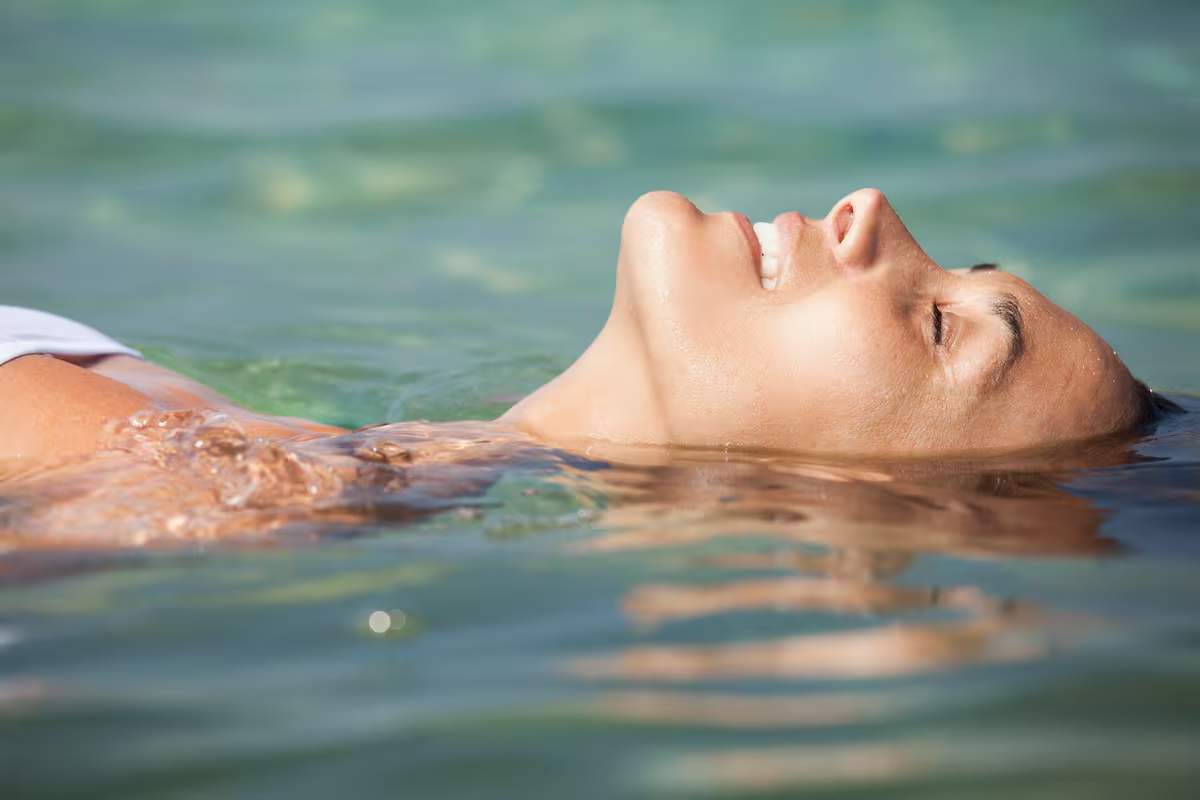
At the end of 2018, Marcos Rodríguez Sierra, then 29 years old, decided to leave his life in Buenos Aires and move to Mar del Plata, near the sea. His need for change was not impulsive. After spending a year traveling to the coast almost every weekend, I felt like I needed to live somewhere I could surf every day. “I remember coming back to town on Sunday and thinking, ‘I want to stay here.’
of connection The relationship between humans and water is an ancestral one. From Roman baths to watching the sea at sunset, water has been a resource associated with regeneration, well-being, and emotional balance. This sensory experience is not just intuitive. Contact with water has certain effects on physical and mental health and is the subject of many scientific studies.
The most important references in this field are: Wallace J. Nicholsmarine biologist, author Blue Mind: The surprising science that shows how being near, in, on, and under water can make you happier, healthier, more connected, and better at what you do. (2014), who argue that Aquatic environments reduce stress, stimulate creativity, and improve overall health. Nichols contrasts two mental states.red mind” is associated with the chronic stress and hyperactivity of modern life, while “blue mind” is associated with calmness, relaxation, and concentration.
Neuroscience shows that the aquatic environment produces beneficial neurochemical reactions. Increases dopamine, serotonin, and oxytocin – Reduces cortisol, a hormone associated with pleasure – associated with stress. Research, including from the Institute of Neuroscience at the University of Exeter, has shown that living near the sea improves mental health. Another study from the University of Canterbury (New Zealand) linked proximity to water to positive thinking and better well-being.
Psychologist Mariana Kerestesachi (MN 47,483) believes that: Contact with the sea is a healing resource. Experts who moved to coastal cities after experiencing first-hand the effects of living near water point to research showing that: Swimming for 30 minutes 2-3 times a week will help. emotional state and reduce the risk of depression.
A European project called BlueHealth found that some people live near ‘blue spaces’ They engage in more physical activity, are less sick, and have lower blood pressure and cortisol levels. He also noted that the aquatic environment Improve and generate sleep calmness and peace of mind.
Nichols explains: Being near water can help you disconnect from mental noise and rejuvenate. default mode network, Neural networks that light up when inner thoughts such as creativity or deep reflection occur. According to research from Brighton Medical School and Sussex Medical School, natural sounds such as waves activate areas of the brain associated with the perception of emotion.
According to Nichols, water also Promote positive social behaviors such as empathy and cooperationand can serve as an emotional refuge during stages of sadness or depression. Geographer Katherine Kelly, author blue spacesupports this view and points out that water therapy can: Helps process emotional trauma.
The experience of coming into contact with a body of water isflow stateRicardo Gil da Costa, neuroscientist and CEO of Neuroverse, says this mental rest.
The awe evoked by the vastness of the ocean can also have a therapeutic effect. Helps reduce ego, improve concentration and see things objectively.
Kerestesachi, who proudly says that her current therapy is going to the sea, recalls working in a clinical setting with a psychiatrist who prescribed swimming three times a week as part of a comprehensive approach to treating depression. “Science supports what many of us already feel: Water changes our minds and bodies.”.



